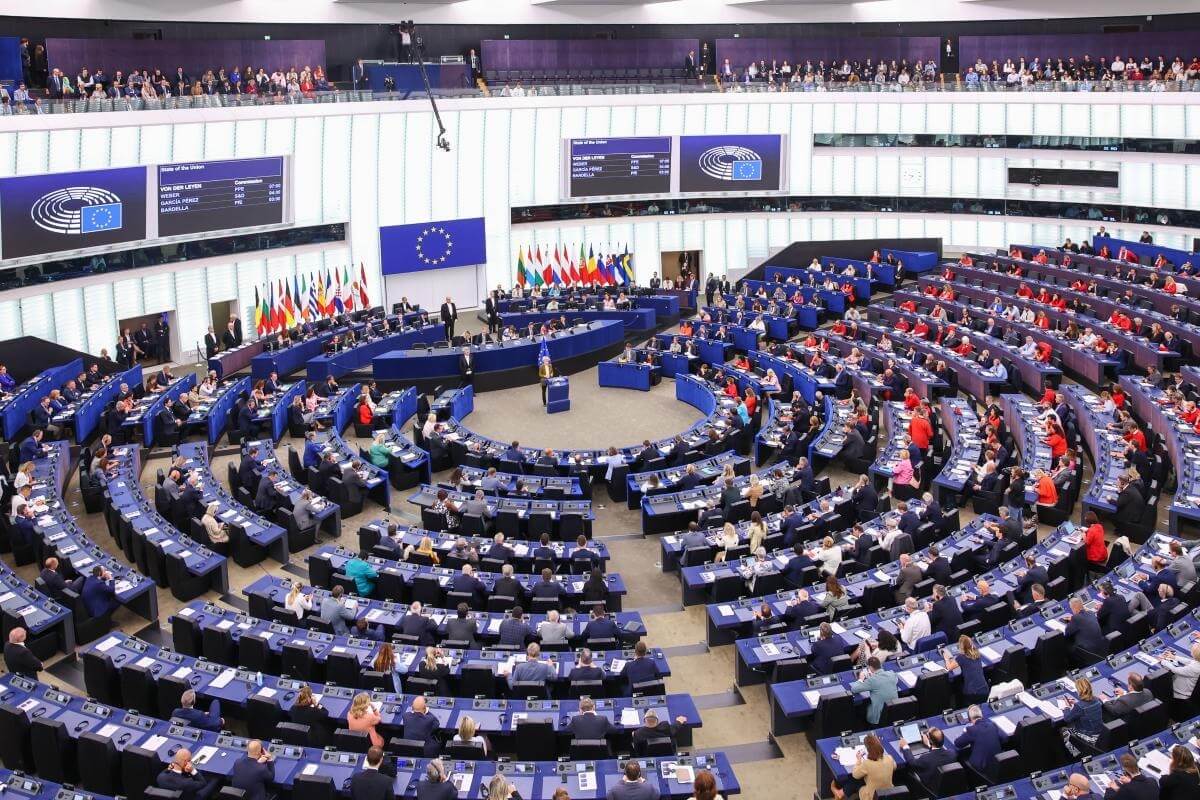European Commission President Ursula von der Leyen’s latest State of the Union address included all the familiar ingredients: soaring rhetoric about freedom and independence, promises of bold action, and a laundry list of initiatives designed to position Europe as a global power.
What it didn’t contain was an honest reckoning with the European Union’s repeated failure to translate its grand ambitions into anything more than modest achievements – a failure that von der Leyen has come to embody.
To her credit, von der Leyen did demonstrate an awareness of what actually matters to ordinary Europeans.
In particular, she acknowledged the escalating housing crisis that has engulfed most of the EU – where housing costs consume a growing share of household income – and the dire humanitarian conditions, including the “man-made famine,” now prevailing in Gaza.
This represents a notable departure from the technocratic detachment that EU leaders have typically displayed.
But this rhetorical responsiveness served only to underscore the tragic irony of von der Leyen’s position.
While she pays lip service to the concerns of ordinary Europeans – “if it matters to Europeans, it matters to Europe” – she remains beholden to national capitals on a number of crucial issues, from relations with the United States to the implementation of the European Green Deal.
And far from throwing their support behind von der Leyen’s agenda, these governments regard her as a convenient scapegoat, enabling them to act in self-interested or weak-willed ways, without facing accountability.
EU relations with the US
As a result, while von der Leyen has promised to strengthen European autonomy, she presides over deepening dependencies, and while she champions European values, she bows to external pressure.
EU relations with the US exemplify this dynamic. While countries have made some moves to increase defense spending, Europe remains reliant on the US security umbrella, and it has capitulated to US President Donald Trump’s trade bullying.
In fact, the trade deal the EU reached with Trump creates new dependencies, as it commits Europe to purchase $750 billion worth of US energy products, as well as American military and defense equipment.
Von der Leyen cannot stand up to Trump on her own
Von der Leyen cannot stand up to Trump on her own. Nor can she impose secondary sanctions on China or India for purchasing Russian oil and gas, halt payments to and trade with Israel, or broker a peace agreement in Ukraine. She needs support from member states, which rarely materializes.
Instead, they actively constrain her ability to act – Hungary blocks sanctions against Russia; Germany refuses to “antagonize” China over trade; and Germany and Italy reject action against Israel – then blame “Brussels” when Europe appears weak.
Breaking point
But this dynamic has now reached a breaking point, as demonstrated by the no-confidence motions now being filed by far-right and far-left groups in the European Parliament.
The motions will not succeed, but they amount to a notable expression of discontent with a system where national governments tie the Commission’s hands and then blame it for paralysis.
Von der Leyen does have options for overcoming resistance from member states
Von der Leyen does have options for overcoming resistance from member states, and delivering the “relaunch” the EU so badly needs.
She could embrace qualified majority voting for trade and energy matters. She could use the “anti-circumvention tool” to tackle sanctions evasion by third countries. And she could employ the unprecedented financial leverage granted by the NextGenerationEU recovery fund.
But making use of these instruments would require von der Leyen to stand up to the member states that block collective action while demanding collective protection.
European independence cannot be established in speeches
Unfortunately, there is little reason to think that she is willing to risk her own political capital to do so.
Her State of the Union address – which lacked any acknowledgement of the dynamics that have hampered progress in the past – only reinforced the impression that she remains firmly enmeshed in the same comfortable arrangements that have left Europe diplomatically irrelevant, despite its economic weight.
 Many Europeans are critical of what they interpret as capitulation to American demands
Many Europeans are critical of what they interpret as capitulation to American demands
The risk is not only that Europe will fail to make progress. In a fast-changing world, where a zero-sum mindset increasingly shapes international relations, Europe’s failure to take bold action will cause it – and its citizens – to fall further and further behind.
As European citizens watch von der Leyen relentlessly tout EU independence, while deferring to member states on the issues that matter most, confidence in the European Commission – and the EU more broadly – will decline.
Many Europeans are critical of what they interpret as capitulation to American demands.
European independence cannot be established in speeches; it must be reinforced through action.
Unless von der Leyen is ready to do what it takes to advance the ambitions that she so eloquently proclaims, she will remain a symbol of Europe’s unfulfilled promise.
Alberto Alemanno, Professor of European Union Law at HEC Paris and visiting professor at the College of Europe in Bruges and Natolin, is Founder of The Good Lobby.